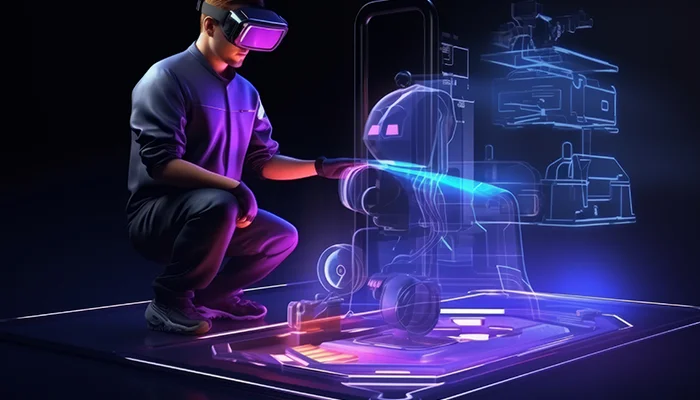
How Model Context Protocol Is Redefining AI Integration for Agile Startups
July 10
10:10 AM
July 10
10:10 AM
In recent years, artificial intelligence (AI) has become a core component of innovation, especially for startups aiming to disrupt traditional markets. But while the promise of AI is enormous, the challenge of integrating it into fast-paced, agile environments remains significant. That’s where the Model Context Protocol (MCP) steps in — reshaping how startups leverage AI to stay lean, scalable, and adaptive. This blog explores how the Model Context Protocol is redefining AI integration for startups, especially those operating under agile development models.
The Integration Dilemma: Why Startups Struggle with AI
Startups are built to be fast, flexible, and iterative. Their teams are small, their timelines are tight, and their budgets are often limited. Implementing traditional artificial intelligence integration models — typically built for enterprise-scale operations — creates friction with these agile workflows.
Here’s where the struggle lies:
Lack of context-awareness in traditional models
Heavy resource requirements for training and maintaining AI models
Rigid workflows that don't fit agile sprints
Difficulty in scaling models across different use-cases rapidly
Startups need AI startup tools that are adaptable, context-sensitive, and aligned with their dynamic goals. This is where Model Context Protocol proves to be a game-changer.
What Is the Model Context Protocol?
The Model Context Protocol (MCP) is a framework designed to make AI models more adaptable to their runtime environment by feeding them structured contextual information. It helps AI systems understand the "who," "what," and "why" behind user queries and actions — all in real time. In traditional AI models, context is often hardcoded or overlooked, leading to generic, inflexible outputs. But MCP enables AI to dynamically interpret situational data, making it more relevant and actionable.
For AI development for startups, this capability is crucial. It means startups can deploy AI that truly understands its user, use-case, and environment — without requiring massive retraining or overengineering.
Why MCP Fits Agile Startups Perfectly
1. Context-Driven Intelligence for Agile Environments
In agile AI development, requirements evolve quickly. One week you’re building an onboarding chatbot, the next you're deploying AI-driven analytics. MCP allows these shifts by letting the same model behave differently based on the context — without rewriting its core logic. This makes AI for agile startups more responsive to user behavior, business goals, and rapid iterations.
2. Faster MVPs and Product Cycles
With Model Context Protocol, startups can experiment and launch Minimum Viable Products (MVPs) faster. Since the model adapts based on context rather than retraining, teams can validate ideas more quickly — a key principle of agile development. This reduces time-to-market and increases the agility of AI integration strategies.
3. Scalability Without Complexity
Unlike traditional AI architectures, MCP scales smoothly across different verticals and use cases. For instance, a startup working on a mental health chatbot can easily repurpose the same AI core for coaching, customer service, or education — just by altering contextual inputs. This modularity supports startup AI solutions that grow with the business.
Real-World Applications for Agile Startups
Startups across various domains are already leveraging MCP to enhance their products:
- Health tech startups use MCP to tailor responses based on patient history and demographics.
- Fintech platforms utilize it to adapt AI-driven recommendations based on user spending patterns.
- E-commerce startups apply it to personalize product suggestions depending on buyer intent and session history.
- Each of these scenarios reflects the need for AI integration for startups that is dynamic, responsive, and context-aware — exactly what MCP delivers.
Key Benefits of Model Context Protocol in AI Development
Reduces Overhead in AI Training: By shifting the responsibility of context understanding to a structured input layer, MCP reduces the need to retrain models for every new feature or domain.
Improves AI Accuracy and Relevance: AI responses become more accurate as the system understands the user’s intent more deeply through contextual cues.
Supports Agile AI Development Lifecycles: MCP allows seamless model updates and versioning without disrupting the user experience, aligning perfectly with the sprint-based nature of startups.
Designing AI Integration Strategies with MCP
For startups planning to embed AI, a modern strategy must include:
Contextual mapping: Defining what contextual elements (user role, task, device, environment) matter most.
Data pipelines: Feeding real-time, relevant context into the AI models.
Model adaptation: Using MCP layers to let the model dynamically react without full retraining.
Feedback loops: Continuously gathering user feedback to refine context structures.
These steps allow AI integration strategies that are lean, responsive, and sustainable over time — a critical advantage for startups scaling rapidly.
The Future of AI Integration for Startups
As more startups adopt AI, the difference between success and stagnation will depend on how efficiently they can integrate AI into agile workflows. Traditional AI integration methods are too rigid and resource-heavy to keep up. The Model Context Protocol offers a way forward. By structuring context at the input layer, it reduces friction, improves performance, and supports the agility that startups thrive on.
Whether you’re building a new productivity app, a healthcare platform, or an automated CRM tool, MCP can drastically enhance your AI’s effectiveness while keeping your operations lean and fast.
Conclusion
AI integration for startups is no longer just about building smart tools — it's about building adaptable, context-aware systems that evolve with your users and goals. The Model Context Protocol offers a transformative way to embed AI in startup environments that demand speed, flexibility, and personalization. By combining agile AI development with contextual intelligence, MCP is setting a new standard for AI startup tools. As the tech landscape grows more complex, startups that adopt smart frameworks like MCP will be best positioned to lead the future.









